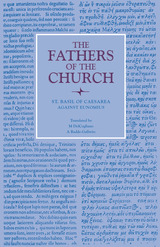
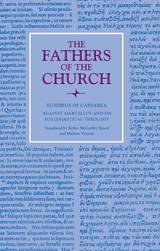
On Ecclesiastical Theology, composed circa 338/339 just before Eusebius’s death, and perhaps in response to the amnesty for deposed bishops enacted by Constantius after the death of Constantine in 377 and the possibility of Marcellus’s return to his see, continues to lay out the criticisms initially put forward in Against Marcellus, again utilizing quotations from Marcellus’s book against Asterius. However, we see in this text a much more systematic explanation of Eusebius’s objections to the various elements of Marcellus’s theology and what he sees as the proper orthodox articulation of those elements.
Long overlooked for statements at odds with later orthodoxy, even written off as heretical because allegedly “semi-Arian,” recent scholarship has demonstrated the tremendous influence these texts had on the Greek theological tradition in the fourth century, especially on the orthodox understanding of the Trinity. In addition to their influence, they are some of the few complete texts that we have from Greek theologians in the immediate period following the Council of Nicea in 325, thus filling a gap in the materials available for research and teaching in this critical phase of theological development.

Arrivals, inspections, victories.
In this volume are three works concerning the campaigns engaged in by the great Roman statesman Julius Caesar (100–44 BC), but not written by him. The Alexandrian War, which deals with troubles elsewhere also, may have been written by Aulus Hirtius (ca. 90–43 BC, friend and military subordinate of Caesar), who is generally regarded as the author of the last book of Caesar’s Gallic War. The African War and the Spanish War are detailed accounts clearly by officers who had shared in the campaigns. All three works are important sources of our knowledge of Caesar’s career.
The Loeb Classical Library edition of Caesar is in three volumes.
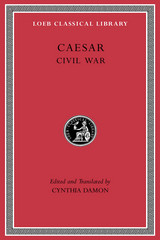
The struggle that ended the Roman Republic.
Caesar (C. Iulius, 102–44 BC), statesman and soldier, defied the dictator Sulla; served in the Mithridatic wars and in Spain; entered Roman politics as a “democrat” against the senatorial government; was the real leader of the coalition with Pompey and Crassus; conquered all Gaul for Rome; attacked Britain twice; was forced into civil war; became master of the Roman world; and achieved wide-reaching reforms until his murder. We have his books of commentarii (notes): eight on his wars in Gaul from 58–52 BC, including the two expeditions to Britain in 55–54, and three on the civil war of 49–48. They are records of his own campaigns (with occasional digressions) in vigorous, direct, clear, unemotional style and in the third person, the account of the civil war being somewhat more impassioned.
This edition of the Civil War replaces the earlier Loeb Classical Library edition by A. G. Peskett (1914) with new text, translation, introduction, and bibliography. In the Loeb Classical Library edition of Caesar, Volume I is his Gallic War; Volume III consists of Alexandrian War, African War, and Spanish War, commonly ascribed to Caesar by our manuscripts but of uncertain authorship.

Caesar (C. Iulius, 10244 BCE), statesman and soldier, defied the dictator Sulla; served in the Mithridatic wars and in Spain; pushed his way in Roman politics as a 'democrat' against the senatorial government; was the real leader of the coalition with Pompey and Crassus; conquered all Gaul for Rome; attacked Britain twice; was forced into civil war; became master of the Roman world; and achieved wide-reaching reforms until his murder. We have his books of Commentarii (notes): eight on his wars in Gaul, 5852 BC, including the two expeditions to Britain 5554, and three on the civil war of 4948. They are records of his own campaigns (with occasional digressions) in vigorous, direct, clear, unemotional style and in the third person, the account of the civil war being somewhat more impassioned.
The Loeb Classical Library edition of Caesar is in three volumes. Volume I is his Gallic War. The Alexandrian War, the African War and the Spanish War, commonly ascribed to Caesar by our manuscripts but of uncertain authorship, are collected in Volume III.
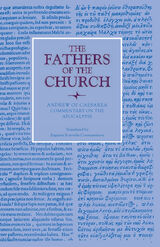


Primarily known as the author of the Dialogus miraculorum—a collection of exemplary stories that secured his reputation as the master of Cistercian storytelling—Caesarius of Heisterbach was also the author of several sermons and homilies. Although they are not as well known today, his Homilies on Jesus’ Childhood are exceptional in many ways. Readers will immediately notice Caesarius’s versatility as he employs an impressive array of persuasive techniques: quoting scholarly works, interpreting Hebrew names and letters, delving into etymology and numerology, and including numerous examples to instruct both the learned and the common person.

The conquest that begot the Roman Empire.
Caesar (C. Iulius, 102–44 BC), statesman and soldier, defied the dictator Sulla; served in the Mithridatic wars and in Spain; entered Roman politics as a “democrat” against the senatorial government; was the real leader of the coalition with Pompey and Crassus; conquered all Gaul for Rome; attacked Britain twice; was forced into civil war; became master of the Roman world; and achieved wide-reaching reforms until his murder. We have his books of commentarii (notes): eight on his wars in Gaul, 58–52 BC, including the two expeditions to Britain 55–54, and three on the civil war of 49–48. They are records of his own campaigns (with occasional digressions) in vigorous, direct, clear, unemotional style and in the third person, the account of the civil war being somewhat more impassioned.
The Loeb Classical Library edition of Caesar is in three volumes. Volume II is his Civil War. The Alexandrian War, the African War, and the Spanish War, commonly ascribed to Caesar by our manuscripts but of uncertain authorship, are collected in Volume III.

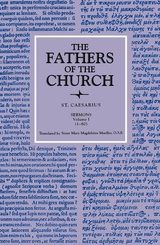
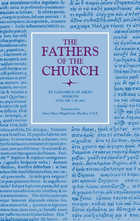
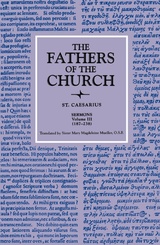

All of these texts have in common the imperative of disguise, represented as the most crucial consequence of dominant discourse, within which subordination might speak only by knowing its place, and write only by producing hidden transcripts.
Caustic, pointed, satiric, Writing in Disguise is an engaging critique of aspects of academia involving the misuse, misappropriation, and misappreciation of verbal communication in its many guises.
READERS
Browse our collection.
PUBLISHERS
See BiblioVault's publisher services.
STUDENT SERVICES
Files for college accessibility offices.
UChicago Accessibility Resources
home | accessibility | search | about | contact us
BiblioVault ® 2001 - 2024
The University of Chicago Press









